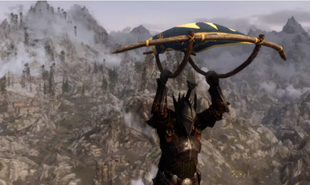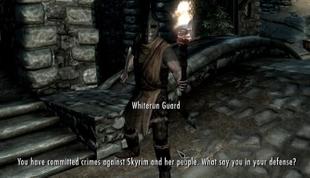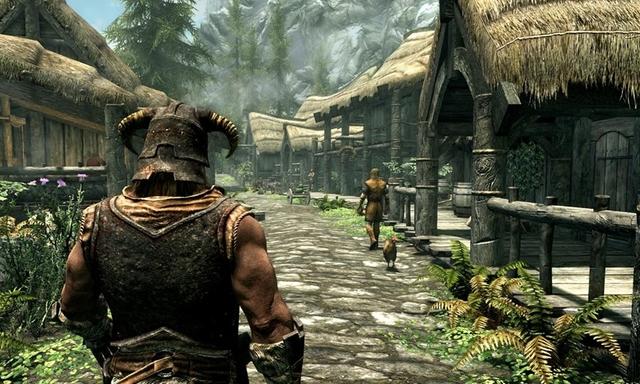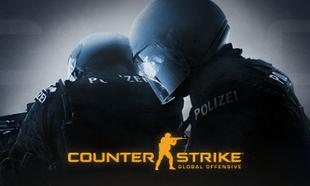"Hey, you. You're finally awake."
Those five words are the first line of dialogue players hear when starting a new game in 'The Elder Scrolls V: Skyrim'.
2002's 'Morrowind' and 2006's 'Oblivion' were hits in their own right in the 6th and 7th generation of consoles respectively, but 'Skyrim' is arguably the most influential game of the 8th.
'Skyrim' was released on the 7th generation granted, but a landscape-altering game like 'Skryim' takes time for its roots to spread, and by the time the 8th generation of consoles came around, 'Skyrim' and its influence had a profound impact on the gaming industry as a whole.
For better and for worse.
On the positive side, the open-world game became the industry standard in the 2010s.
The sandbox game existed before 'Skyrim'; 2010 alone saw 'Just Cause 2' and 'Red Dead Redemption' and 2011 had the release of 'The Witcher 2' but 'Skyrim' made the open-world game an art form.
The world of 'Skyrim' is as dense and rich as a good fantasy book, and let players live out their fantasy novel dreams.
If you want to become a blacksmith, a master thief, a bare-knuckle boxer, a spouse or a legendary dragon hunter, the game lets you do just that.
The 2017 entry in the 'Zelda' franchise, 'Breath Of The Wild' is indebted to 'Skyrim' and its game design, and that is still to this day the Nintendo Switch's killer app.
It is very hard to imagine 'Breath Of The Wild' existing without 'Skyrim'.

Whenever a new open-world game is pitched, it's usually referred to as 'Skyrim with X' which is a natural evolution of 'Fallout 3' being referred to as 'Oblivion with guns'.
'Skryim' has sold well over 30 million copies, and when the book of video of games is written, 'Skyrim' will undoubtedly be the game that stands up there with the likes of 'Tetris', 'Doom', 'Minecraft', 'Half Life' and 'The Simpsons Hit and Run' as the greatest touchstones in the video game medium.
The gameplay loop of being able to tackle questlines as you see fit remains the best in the industry, and in the glut of sandbox games released post 'Skyrim' very few games ever managed to match the game for the sheer depth of options and variety.
The lazy Saturday afternoon quality of wandering around the game world and suddenly being ambushed by bandits or giants still remains as electric and fresh as it was in 2011.
With that said, this article won't really discuss the gameplay side of 'Skyrim' - anyone reading this has played through it multiple times and what can we say about the gameplay that hasn't been said a million times?

'Skyrim' and its legacy goes beyond what's on the disc.
On the flip side of praise, 'Skyrim' has seen more re-releases than 'Gone With The Wind' and 'Star Wars' and can be put at the centre of the current gaming trend of re-releasing older games on newer consoles.
At this stage, 'Skyrim' has been released on everything with a screen, just short of a microwave and a Casio calculator.
The release and subsequent success of 'Skyrim' also set a dangerous precedent in the gaming industry; the culture of 'fix it in a patch'.
With the advent of gaming consoles and online connectivity, it became easier than ever for developers to fix problems with their games with a simple patch, and in some cases, games are shipped in an unfinished state.
'Skyrim' along with fellow Bethesda property 'Fallout: New Vegas' shipped with glitches and bugs galore, but the acceptance of the bugs set the industry down a dangerous path - just ask 'Cyberpunk 2077' or 'No Man's Sky' what happens when you rush out an unfinished game.
Yes, gaming development is a tremendously tricky process but the virtue of 'Skyrim' being a smash success despite its bugs and glitches is one of the gaming industry's sillier developments.
The consumer accepted that games were never going to be 100% perfect, when in the Nintendo era of the 1990s, consumers expected nothing less than perfection.
Granted, games have become infinitely more complex and difficult to develop since the 8-bit era, but 'Skyrim' led the charge of games being unfinished at launch and consumers accepting that at face value.
Rockstar Games and Nintendo get flak from press and players alike for delaying their games, but they hold themselves to higher standards than Bethesda.
Rockstar would never dream of releasing the next 'Grand Theft Auto' the same manner in which Bethesda have launched their games in the past.
With that said, Bethesda appears to be learning from its mistakes.
Game director Todd Howard has cult hero status in the gaming industry - some see him as a George Lucas type, a visionary who defined a genre forever, while others see him as a Don Quixote figure, an idealist who promises much and delivers modestly.
Todd Howard turned Bethesda from a mid-tier developer to being acquired in a billion-dollar deal by Microsoft, so the man has impeccable business acumen.
His next project 'Starfield', is the studio's first original IP since the very first 'Elder Scrolls' game launched in the 1990s.
The game was announced at E3 2018, but won't hit consoles until this time next year.
We're expecting a comprehensive and in-depth reveal at next year's E3, and if his 2015 conference for 'Fallout 4' is anything to go by, he will be the star of the show and the industry's golden boy once again.
Howard has kept mum on the game thus far, along with 'The Elder Scrolls 6' and hasn't reached Peter Molyneux levels of outlandish promises with the game just yet.
Whatever your opinions on the man himself, Howard created something groundbreaking with 'Skyrim', and it's a testament to the man that a game can ship with more bugs and quirks and still become a landmark in the gaming industry and still played by millions a decade after launch.
'Star Wars' isn't a perfect film, 'The Wire' has that one admittedly weak final season, 'Automatic For The People' has that one track that everyone skips, and 'Skyrim' is still a watershed moment for the gaming industry, warts and all.








































































